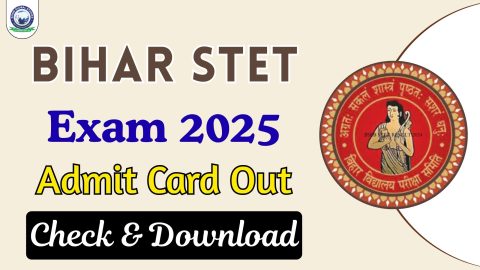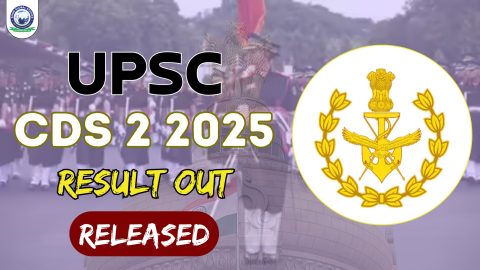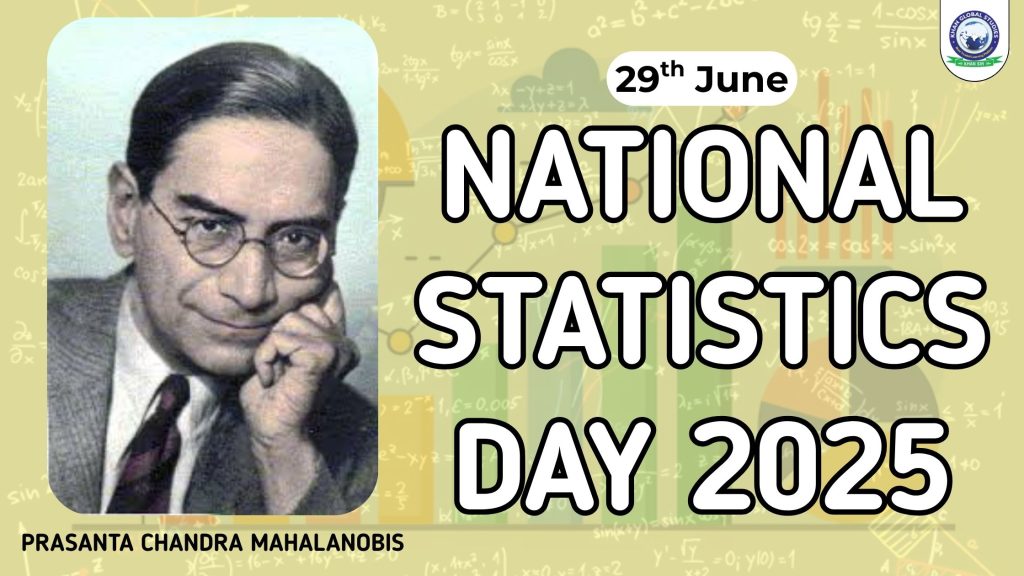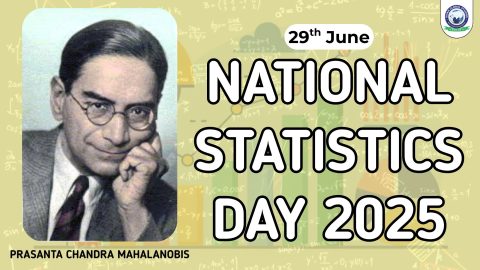National Statistics Day is celebrated every year in India to honour Prasanta Chandra Mahalanobis, one of the country’s most influential statisticians, and to emphasise the crucial role of statistics in shaping modern India. The celebration is not just a tribute but a national call to recognise how statistical tools contribute to governance, planning, development and informed decision-making.
Date and Theme
National Statistics Day 2025 will be celebrated on Saturday, June 29. The date marks the birth anniversary of Prasanta Chandra Mahalanobis, the architect of India’s statistical system.
The theme of National Statistics Day 2025 is:
“Using Data to Inform Decision Making”
The theme reflects the growing need to use data for evidence-based governance, policymaking and strategic development. In an era where data is often called the new oil, this topic is highly relevant and emphasises India’s efforts to build a data-driven future.
About Prasanta Chandra Mahalanobis: Father of Indian Statistics
Prasanta Chandra Mahalanobis was a pioneering Indian statistician, scientist and visionary planner. Born on June 29, 1893, Mahalanobis laid the foundation of modern statistics in India through both theoretical innovation and practical application.
Major Contributions of P.C. Mahalanobis:
- Mahalanobis Distance: A statistical measure widely used in cluster analysis and pattern recognition.
- Founder of the Indian Statistical Institute (ISI) in 1931, one of the world’s premier research institutes in statistics and data science.
- Key member of India’s first Planning Commission, who contributed significantly to the Second Five-Year Plan, which emphasised industrialisation through statistical forecasting.
- Awarded Padma Vibhushan, one of India’s highest civilian awards, for his remarkable contributions to science and statistics.
- His legacy lives on today through the institutions and systems that are an integral part of India’s development mechanism.
History of National Statistics Day in India
In 2007, the Government of India formally declared 29 June as National Statistics Day to honour the extraordinary work and life of Prasanta Chandra Mahalanobis. The goal was not only to celebrate his legacy but also to raise awareness among the general public and youth about the importance of statistics in national development. The Ministry of Statistics and Programme Implementation (MoSPI) leads this celebration every year by organising national conferences, seminars, lectures and statistical exhibitions across India.
Objectives and Significance of National Statistics Day
The objective of celebrating National Statistics Day goes beyond celebrating a birthday. It has strategic implications for the future of data-driven governance and inclusive growth. Main objectives:
- Promote statistical literacy: Raise awareness among students, researchers and the general public about how statistics influence everyday decisions and policies.
- Encouraging innovation in data science: Inspiring the younger generation to explore careers in statistics, economics, and data analysis.
- Highlighting the role of data in planning: Emphasizing how robust statistical tools are essential for formulating national and regional strategies.
- Bridging the gap between data and decision-making: Encouraging government departments and private organizations to make informed decisions using empirical data.
Importance in Modern India
In today’s digital age, where massive data sets are generated daily, statistical analysis helps extract meaningful insights. From COVID-19 response planning to agricultural forecasting, economic growth projections, poverty assessments, and climate change modelling, data serve as the basis for all policy-making.
Difference between National Statistics Day & World Statistics Day
While National Statistics Day is celebrated annually on June 29 in India, World Statistics Day is a United Nations initiative that is observed every five years on October 20.
| Metric | National Statistics Day | World Statistics Day |
| Date | 29 June | 20 October |
| Focus | Honouring P.C. Mahalanobis and India’s statistical progress | Global awareness about the importance of statistics |
| Organised by | Government of India (MoSPI) | United Nations Statistical Commission |
| Started in | 2007 | 2010 |
Celebrations and Events on National Statistics Day 2025
The 2025 edition of National Statistics Day will see some activities being organised at the national and state levels:
- Inaugural speeches by ministers and leading statisticians
- Panel discussions and technical sessions on this year’s theme
- Poster presentations, quiz competitions and essay competitions in schools and colleges
- Virtual webinars and conferences for wider participation
- Awards and recognitions for excellence in statistical research
Government departments, research institutes like ISI and universities play a central role in making this day impactful.
How Statistics Shape Policy and Governance in India?
India’s governance system relies heavily on statistical inputs. Some of the most important areas where statistics play a decisive role include:
- Economic Planning: Statistical data on inflation, GDP, unemployment and public expenditure form the basis of annual budgets and five-year plans.
- Health and Education: Healthcare indices, disease prevalence models and educational literacy rates help the government in resource allocation and programme planning.
- Social Welfare: Surveys such as the NFHS (National Family Health Survey) and the Census are used to track poverty levels, nutrition, child mortality and population growth, enabling better policymaking.
- Agriculture and Rural Development: Statistical models help predict crop yields, rainfall, and market trends, enabling millions of Indian farmers to make informed decisions.
Inspiring the Next Generation of Statisticians
Through National Statistics Day, India aims to foster a new generation that is statistically aware, data-savvy, and able to leverage insights for progress. In a world dominated by artificial intelligence, machine learning, and big data, understanding the fundamentals of statistics is more important than ever.
Academic institutions are now integrating statistical education with digital literacy, ensuring that students are equipped for the data-driven jobs of the future.
Final Thoughts
As India celebrates National Statistics Day 2025, we honour the monumental legacy of P.C. Mahalanobis, whose visionary work continues to shape national policy and progress. This observation is a reminder that in every sector – be it health, education, economy, environment, or infrastructure – data is power.





